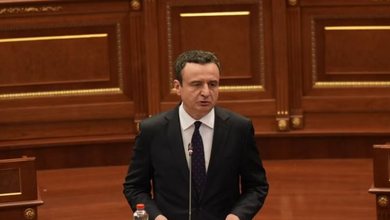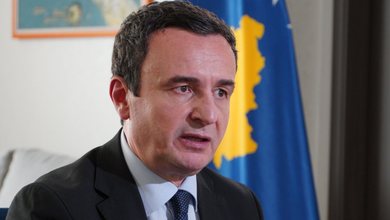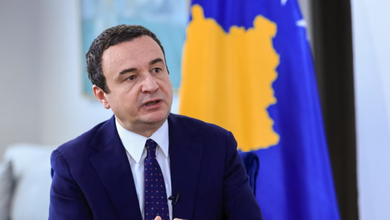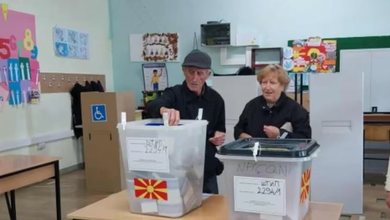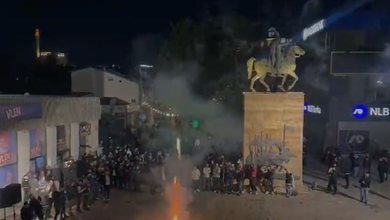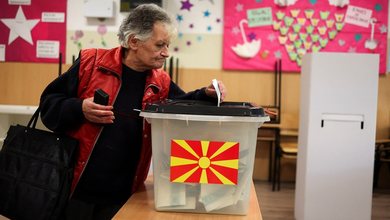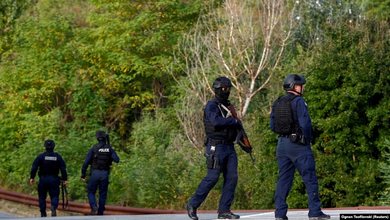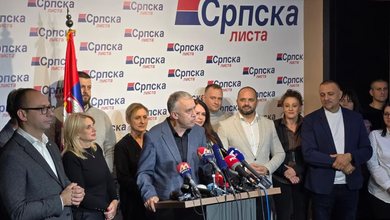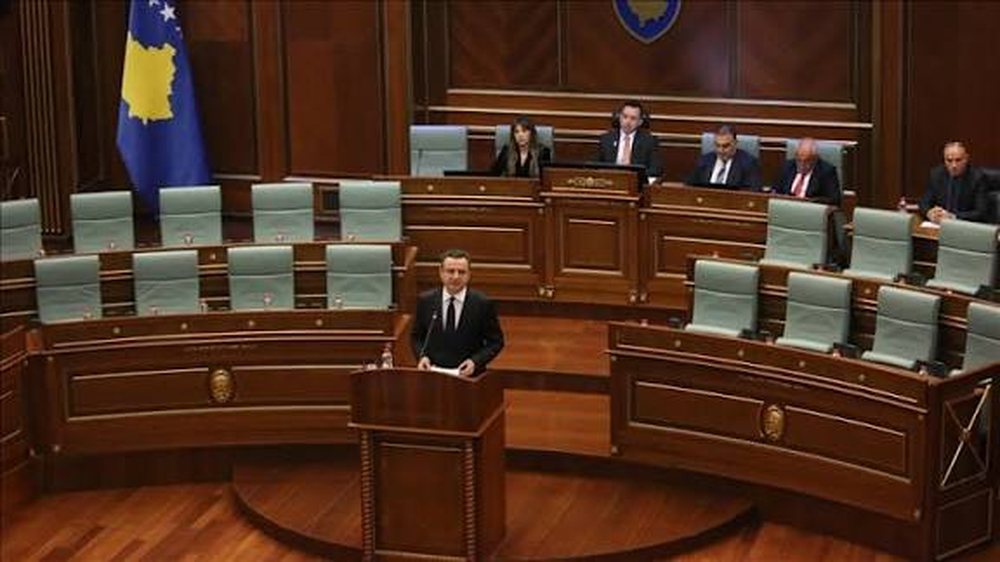
Albin Kurti, who has governed Kosovo for more than four years, failed to secure a parliamentary majority to form a government, even though he was the first winning party with 42%.
The Kosovo Assembly, convened in an extraordinary session, failed to elect the new Kosovo government with Albin Kurti as prime minister. The prime minister, who has governed Kosovo for more than four years, received only 56 votes out of the 120 members of the Kosovo parliament. Kurti needed at least 61 votes, the minimum required. 52 members of the former opposition parties voted against, while 4 abstained.
The Speaker of the Parliament of Kosovo, Dimal Basha, after Kurti's failure to obtain the majority needed to form a new government, said that "the responsibility now passes to the President of Kosovo, Vjosa Osmani," who, as she has previously stated, will call all political parties if any of them secures a parliamentary majority.
Reactions of opposition parties
Representatives of the former opposition political parties said that since the end of the February 9 elections, they have known that Albin Kurti does not have the necessary numbers to form a government. The leader of the Democratic Party of Kosovo (PDK), Memli Krasniqi, said after the session that "today it has been proven that Albin Kurti is holding the country hostage."
"This is the end of a political deception that has cost our country these months with isolation, division, and waste of time. Albin Kurti will no longer be the Prime Minister of Kosovo. He will not be anymore," Krasniqi repeated. According to him, "any new government without Kurti will be good for Kosovo."
The head of the parliamentary group of the Democratic League of Kosovo (LDK), Hykmete Bajrami, also expressed this line, saying that the voting in Sunday's session proved that the Vetëvendosje Movement did not have the necessary votes to form a new government, even though she had repeatedly said this.
"When the parties could not agree on the post of Speaker of the Assembly, representatives of the LVV said that they did not have the numbers for this post, but they had the necessary votes for a new government. What we have known from the beginning was confirmed: that the LVV, although the winner of the February 9 elections, does not have the numbers to form a new government," said Bajrami. According to her, "what happened today is that we are heading towards the process of extraordinary elections."
Lack of political dialogue
Civil society organizations that continuously monitor the elections and the work of the Assembly, KDI, in a statement to the media, said they are "disappointed by the failure of the deputies of the Assembly of Kosovo to form the new government."
“This result is a direct consequence of the lack of political dialogue and the failure to reach agreements that would enable the normal functioning of the country’s institutions,” the KDI said in a statement. According to the KDI, as a result of “the deep political deadlock and polarization, holding early elections would be the best solution.”
"Under these circumstances, early parliamentary elections represent the most sustainable and credible option to end this crisis and restore to citizens the opportunity to determine the political direction of the country," says the KDI's response, which highlights that, however, "not even elections guarantee that new institutions will be formed if there is no will for political consensus and compromise."
New extraordinary elections?
However, following Albin Kurti's failure to form a new government, Kosovo is heading for a new institutional crisis, possibly leading to new snap elections. Earlier this week, during a visit to London, Albin Kurti himself hinted that he may not be able to form a new government and said that "an alternative solution is to hold new parliamentary elections."
However, the Kosovo Constitution stipulates that if the proposed composition of the new government does not receive the necessary majority of MPs, the Kosovo president must appoint a second prime minister to form the government within ten days. The president also said this in an interview with DW.
"If there is no agreement, then, as president of the country, I will invite all political parties to see if there is a possibility for someone to form a majority, because I think it is still too early to talk about snap elections, but that is an alternative if a majority is not formed," said President Osmani.
The second prime minister-designate, whoever he or she is, would again have 15 days to propose the composition of the government to the Assembly. And if the second time the mandated person fails to secure a parliamentary majority, then the President of Kosovo is obliged to announce new extraordinary elections, which must be held within 40 days from the date of the announcement.


